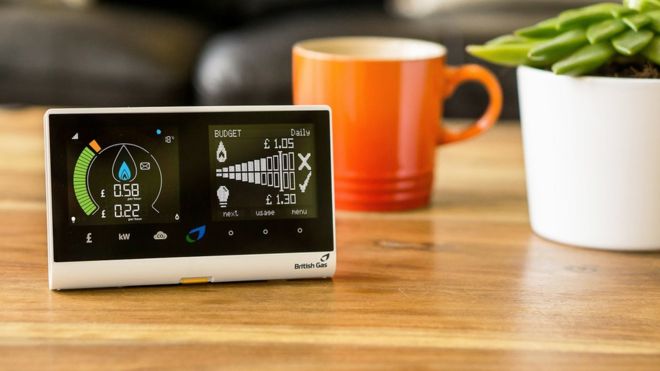
Citizens Advice reported that 80% of customers who have already received smart meters are satisfied with them, but said it registered 3,000 complaints about smart meters to its helpline in 2017. Callers stated that their smart meters had ‘gone dumb’ after the customer switched provider and they they were still having to provide manual readings to their suppliers. Citizens Advice also warned that energy companies were using aggressive and misleading tactics to convince customers to accept smart meters, including incorrectly telling them it was compulsory to accept a smart meter and that their bills would rise without one.
All suppliers will eventually be required to offer smart meters. You don’t have to accept a smart meter when your meter reader comes knocking, but it can save you money, by allowing you to monitor in real time your energy use and make adjustments to lower your consumption. The smart meter also sends readings automatically to your supplier, eliminating the need for you to provide them.
A smart meter won’t cost you anything directly. The overall cost of the rollout, estimated at £11 billion, will be spread across all our energy bills. If we’re going to collectively invest that much money, you should reap some of the benefits, both in your monthly budget and in your impact on the environment.
Benefits of Smart Meters
- 🔵 No more estimated bills: With ‘dumb’ meters you generally supply meter readings every few months. In between, your supplier estimates your usage for the month—possibly overcharging you. A smart meter, automatically transmitting readings to your suppliers, eliminates the guesswork, ensuring you’re only paying for the energy you actually use, not an extrapolation based on your previous use and the size of your home.
- 🔵 No need to provide manual readings: Automatic readings also eliminate the semi-annual ritual of rummaging in a dark cabinet with a torch or smartphone, straining to read your meter and write down the numbers it displays.
- 🔵 Display energy use in pounds and pence: Standard meters display your energy usage in a series of six numbers that refer to kilowatt hours. The relationship between those numbers and the sums you see on your bill is often opaque for customers. A smart meter displays your use in real time, both in units of energy (kilowatt hours) and, more understandably, pounds and pence. Seeing the real life cost of leaving on your lights and heating your home to 22C can help you adjust your behaviours.
- 🔵 Reduce your environmental impact: A smart meter can make you aware of your energy use, promoting behaviours that not only reduce your bill but limit your impact on the environment. Despite the shuttering of coal plants and rapid greening of our energy infrastructure, energy generation continues to account for a quarter of all greenhouse gas emissions in the UK. We’ll all need to reduce our energy consumption in order to meet the government’s target of reducing carbon emissions by 80% relative to 1990 levels by 2050—and to ensure the survival of our species.
Can I Switch Energy Provider When I Have a Smart Meter?
Having a smart meter provided by your energy supplier will not indefinitely tie you to that tariff and provider. You’ll be able to switch as you did before but you might find, especially if you have a first generation smart meter, that it goes dumb and no longer boasts fully functionality after you do so. A report from the parliamentary British Infrastructure Group earlier this year found that of the million households with smart meters which switch supplier every year, half discovered their smart meter had stopped working after the handover. The second generation of smart meters is supposed to remove this fault but rollout has been extremely limited thus far: as of January 2018, only 450 had been installed across the country.
How to Get a Smart Meter
Energy companies are rolling out smart meters in a piecemeal way across the country. Unfortunately, if your provider isn’t installing them in your area yet, you can’t jump the queue. And some smaller suppliers haven’t even begun issuing them. Contact your supplier to see if they’re offering smart meters in your neighbourhood yet.
You may also like to read: Intelligent Electronic Energy Meter is Totally Tamper Proof
RamaRaoji,
Namaste.
I have worked in the Power & Utility business & know the importance of smart metres. I believe 100% electrification through SOUBHAGYA Yojana will be a game changer, especially supported by smart prepaid energy meters.
Nice post. I was checking constantly this blog and I’m impressed! Extremely helpful information 🙂 Thank you and good luck.